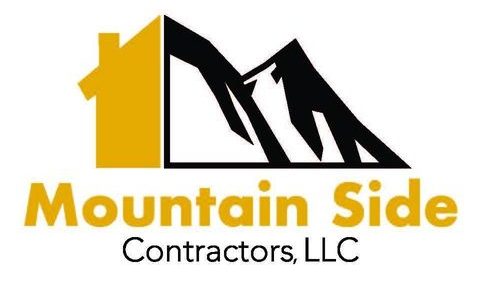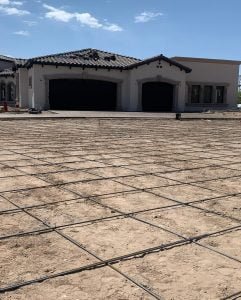Concrete driveways are a popular choice for homeowners due to their durability and longevity. However, despite their robust nature, concrete driveways can develop cracks over time. In this blog post, we will dive into the various reasons why concrete driveways may crack, providing valuable insights for homeowners and helping them take preventive measures.
- Weather Conditions: One of the primary contributors to concrete driveway cracks is the impact of weather conditions. Extreme temperature fluctuations, especially in regions with hot summers and cold winters, can lead to the expansion and contraction of the concrete. This constant movement can eventually result in cracks.
- Improper Installation: A poorly constructed driveway is prone to cracking. Issues such as inadequate reinforcement, improper mixing of concrete, or insufficient curing time can weaken the structure, making it susceptible to cracks. It’s crucial to hire experienced professionals for the installation of concrete driveways to ensure proper construction.
- Subgrade Issues: The subgrade, or the soil beneath the concrete, plays a vital role in the driveway’s stability. If the subgrade lacks proper compaction or is of poor quality, it can lead to settlement issues, causing the concrete above to crack. Ensuring a well-prepared subgrade is essential for a crack-free driveway.
- Tree Roots: Nearby trees can be a hidden culprit for driveway cracks. As tree roots grow, they exert significant pressure on the concrete, leading to cracks over time. Identifying and addressing tree root issues promptly can help prevent further damage.
- Heavy Loads and Traffic: Constant exposure to heavy loads, such as large vehicles or equipment, can stress the concrete beyond its capacity, resulting in cracks. Additionally, high traffic areas may experience more wear and tear, contributing to the formation of cracks.
- Lack of Expansion/Control Joints: Concrete naturally expands and contracts due to temperature changes. Without proper expansion joints, the stress from this movement can manifest as cracks. Including expansion joints during installation allows the concrete to flex without causing structural damage.
- Chemical Exposure: Exposure to harsh chemicals, such as de-icing salts or oil spills, can accelerate the deterioration of concrete. Over time, this can weaken the structure and lead to the formation of cracks. Proper cleaning and sealing can mitigate the impact of chemical exposure.
Conclusion: Understanding the reasons behind concrete driveway cracks is the first step in ensuring their longevity. Homeowners can take proactive measures by choosing experienced contractors, addressing subgrade issues, incorporating expansion joints, and maintaining a vigilant eye on potential stressors like tree roots and chemical exposure. By implementing these precautions, homeowners can enjoy a durable and crack-resistant concrete driveway for years to come.



